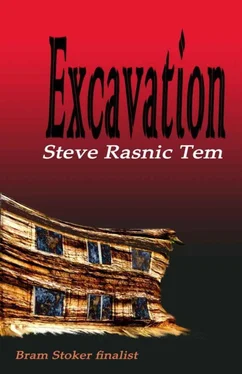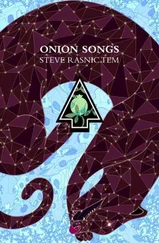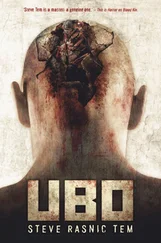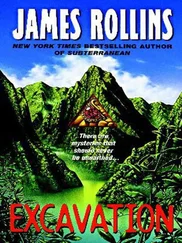It had turned chilly; they were up about six thousand feet. Fog had shrunk their world to a rough oval about fifty feet across. Charlie stared past the campfire at the white cloud surrounding them, broken limbs protruding here and there out of the mist like arthritic fingers.
They’d all been surprised by the turn the hunt had taken, even Amos Nickles, who appeared to have encountered almost everything in the way of bear antics. They’d picked up on the trail almost immediately—so quickly it seemed as if the bear had been waiting for them to follow him—tracked it around the edge of the old Taylor property, and before they knew it the bear was leading them straight up the Big Andy, right to the top, where bears had never been before, according to Amos Nickles, even when he was a boy.
The dogs were near exhaustion; Amos said he’d never seen a bear run animals so hard. “Ain’t no natural bear.”
Charlie didn’t know if it was fear or cold, but he was shaking.
There were bits of the Ice Age left behind here, he thought. Thick tree trunks dark with damp. Shallow pools of still black water. On the climb up he noticed how the shortest trees were on the cold, windward side, and most of these trees bare of branches on this side. Ice had built up and broken the branches off during the winters, he supposed. Further up the slope many trees had been blown down, hanging in the upper branches of their neighbors like fallen soldiers. Other trees were leaning or twisted crazily.
Brittle gray lichen covered large areas of the trees and stone, like pale, luminous shadows in the dark. Charlie had heard that some of these growths might be over two thousand years old. Here and there you’d run into a muskeg, or “trembling earth” as the Indians called it. Bog. Most of them were small, a thick mat of vegetation you could stand on covering a shallow pool of water and sediments. You always wondered if there might be larger bogs out there; the Indians certainly did. There were a number of old tales about Indians being swallowed up by the trembling earth. There were also stories about missing white hunters.
Charlie, Joe, and Ben Taylor had remained by the fire. They were exhausted, and didn’t have the enthusiasm for the hunt shown by Amos Nickles and Jake Parkey. They’d rejoin the party later, but Charlie had some doubts the hunt would continue much longer. They were all tired, and after the bear had led them this far, he seemed to have just disappeared into the fog.
Charlie didn’t like it here. There were supposedly few animals at this altitude, but their presence seemed to be everywhere. Not just the bear, although his leading them to this remote spot seemed strange enough in itself, but all the other animals, now insubstantial as fog, that had once existed. On similar mountaintops in the area, the bones of the great ground sloth had been discovered, over seven feet high at the shoulder. Saber-toothed tiger, mastodon, mammoth, then later the musk ox, elk, and Eastern bison. All of them gone.
Amos had told them there had been timber wolves up on Big Andy when he was a boy, as well as cougars. But that had been a long time ago.
Charlie found it hard to put all that together. So many different forms of the beast in one place. As if you could just sprinkle some bog water on an ancient stone and some bizarre form of life might sprout there, uproot itself, and bound after a rabbit. Suddenly the luminous fog seemed alive with wet nostrils and eyes.
A bear was actually a throwback to all of that, but something more. A bear was more human than elk or mastodon. Like a human swollen with darkness. So empty of purpose it eats constantly trying to fill itself, that it might be ready for its six-month dreamsleep. A bear ate the kind of things people ate; human garbage was a treat. Then wild apples and horse plums, shadberries, and watercress for dessert. And its front and back paws were different because they’d been used differently. Just like a man’s. Manlike wails and grunts. “Wild-man-of-the-woods,” some of the Indians had called it, what you might imagine a neighbor might become, if left in the woods for generations, deprived of companionship and forced to live in the dark.
Charlie thought the most frightening thing about a bear was that face. Just like a mask with its hidden eyes and unmoving muzzle. You couldn’t tell what a bear was thinking by looking into that face, if he was planning to run or rip you apart. And that smell—there was nothing like it. A bear smells like everything he’s eaten, dying there in the bear mask mouth.
Joe Manors stirred the fire lazily and looked past Charlie into the fog. “Wet one, huh, Charlie?”
“That it is.”
“S’pose they’ll shoot the damn thing?”
Ben Taylor chuckled. “I expect those eager beavers are more likely to shoot each other.”
Joe squirmed closer to the fire. “Hey, Charlie? Why don’t you tell us one of those famous spook stories o’ yours?”
“Yeah, Charlie. Tell the one about the big toe!” Ben Taylor said, laughing.
“Yeah, Charlie; that’s a goodun.”
Charlie gazed into the fire, eyes fixed on the glowing embers near the bottom. He didn’t think they really wanted to hear the tale; they just wanted to kill some time. And he didn’t want to tell the story, having told that particular old folktale a hundred times. Everybody knew it. But strangely, he found himself beginning, as if the way the flames danced were forcing him to speak.
“An old, ragged-looking man was out walking in the woods,” he began.
Joe interrupted. “Hey, Charlie, weren’t that a little boy last time you told it?”
Ben Taylor waved his hand at Joe and looked at Charlie Simpson with a worried expression on his face. Charlie spoke dully, as if half-asleep or half-dead, his eyes rigid, only his mouth moving. Now and then the eyes gleamed before the firelight, as if on their own.
“The man had been out in those woods a long time, so long he couldn’t even remember when was the last time he’d seen another human being. His clothes were all ragged; he ate wild berries, roots, grubs, birds—just like an animal. He couldn’t remember the names for most things, and when he opened his mouth to speak, it was growls and snaps and yappings that came out of it.”
Joe and Ben drew closer together on the opposite side of the fire. Across the flames Ben could see Charlie Simpson’s narrow, almost meatless face, his eyes reflecting the campfire with red highlights. Ben wondered why Charlie was changing the story; it didn’t sound like one of Charlie’s at all.
“One day he found himself in the darkest part of the forest, a place he had never been before. So dark it was hard to see where one tree ended and another tree or the night between them took up. Great trees leaned crazily over him, curtains of moss bending the boughs almost to the ground. Exposed roots lay everywhere like amputated knees and elbows, and he had to walk carefully so as not to fall flat on his face.
“He was hungry now, hungrier than he could remember ever being before. That’s when he found the root. It looked so juicy and tender, but when he stooped down to examine it, he saw that it looked like somebody’s big toe.”
Joe Manors chuckled softly, but Ben Taylor detected a strain in the laugh. This was a part of the story Ben recognized, and it made him think about the fun of the rest of the tale. But everything else about the story was so strange and disturbing, he was having a hard time enjoying it. This wasn’t like one of Charlie’s stories. This wasn’t like Charlie at all.
“He hesitated picking up the root, or the toe—it was really hard to tell for sure which it was, it was caked with so much dirt. But he was so hungry. He popped the toe in his mouth and began to chew, thinking it mighty delicious.”
Читать дальше












